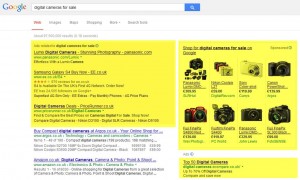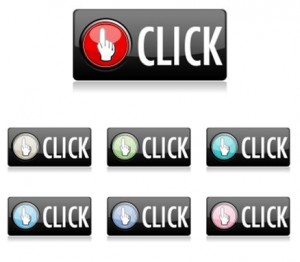Paid Advertising Part Two – PPC and CPC
In Part One of our Paid Advertising series, we explained what AdWords and AdSense are and looked at the differences between the two. In this Part Two we will take a closer look at PPC and CPC. We will define the two concepts so there’s no more confusion and you get a better understanding of each.
What is PPC?
PPC stands for Pay-Per-Click advertising and it refers to advertisers paying a specific amount each time one of their ads is clicked. Often PPC is used with search advertising which allows businesses to advertise on search engines such as Google. Advertisers bid for ad placement in the search engine’s sponsored links for keywords related to their offering; a fee is paid each time an ad is clicked.
PPC is an effective way to drive targeted traffic to a website as you only bid on keywords that are relevant to your business and offering. PPC relies heavily on keywords which means the key to a successful, highly converting PPC campaigns are: keyword research, keyword grouping and keyword organisation. The goal is to create a list of keywords that are not only relevant to your offering but also the exact terms people are searching for.
Take a look at the example below. Here are the ads that Google returns when searching for “digital cameras for sale”:
There’s a number of factors that determine a successful PPC advertising campaign but these are the most important:
- Relevance – Researching and putting together relevant PPC keyword lists, tight keyword groups, and catchy ad text.
- Quality Score – Google’s rating of the quality and relevance of your keywords and PPC campaigns.
PPC is a great way to attract relevant traffic to your site and only pay when your ads are clicked.
What is CPC?
CPC refers to cost-per-click and it’s the amount advertisers earn each time a user clicks on their ad. The CPC is set by advertisers depending on how much they’re willing to pay for each click. There’s no exact amount as it depends on many factors, including your closest competitor’s ad rank, maximum bid, and quality score, but the actual CPC formula is:
Competitor Ad Rank/Your Quality Score +.01 = Actual CPC
CPC is important because it’s what helps you determine the success of your paid search advertising campaigns. Your ROI (Return On Investment), is determined by how much you pay for clicks and how much you are getting from that investment. So, you need to think about CPC in terms of cost as well as value. This means that you want to identify and target clicks that are both valuable and inexpensive.
CPC is the amount advertisers pay each time one of their ads is clicked and it helps determine the success of a campaign.
What’s the difference between PPC and CPC?
CPC pricing is sometimes known as pay-per-click (PPC). For example, you may say: “We want to run a PPC campaign with Google and we want to average our CPC at $0.75.”
While PPC refers to the actual ad campaign that you can create using the AdWords platform, CPC refers to your budget and the amount you are willing to pay when someone clicks your ad.
Have questions? Leave them in a comment below.


